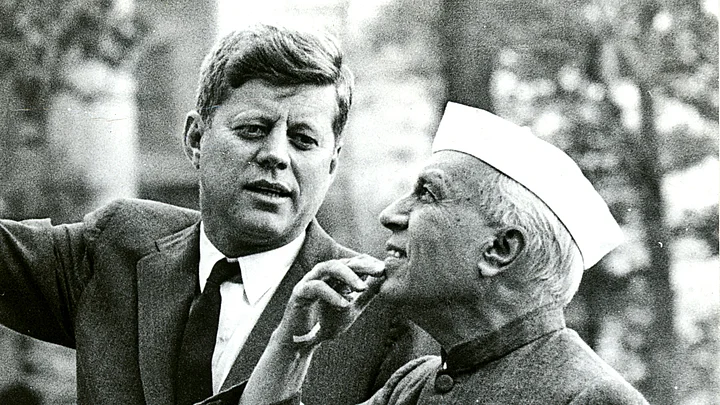Pandit Nehru’s virtual disdain for America was primarily responsible for a half-century of diffidence, and often hostility, towards them. Here is an edited excerpt from my book, SuperEconomies: America, India, China and the Future of the World, on the 51st death anniversary of India’s first prime minister.
During World War II, US President Franklin Roosevelt, an avowed anti-imperialist, had staunchly supported India’s independence movement, repeatedly pressuring British Prime Minister Winston Churchill to set it free—in part to secure India’s commitment to the Allied war effort. But by the time the British Raj quit India six years later, Roosevelt was dead and the US was preoccupied with fighting Communism. Washington didn’t pay much attention to the division of the subcontinent, or the horrific sectarian violence that accompanied it.
Still, the socialist bent of India’s first leaders worried the US. Nehru articulated India’s nonalignment policy early on, but he clearly had a soft spot for the Soviet Union. ‘We have to be on friendly terms with both Russia and America,’ he wrote in a letter to his sister, Vijaya Lakshmi Pandit, who was representing India at the inaugural meeting of the United Nations in 1946, but ‘personally I think that in this worldwide tug-of-war there is on the whole more reason on the side of Russia’—adding diplomatically, ‘not always of course.’
Soon Pakistan helped drive the first real wedge between India and the US—Kashmir. Nehru told the US ambassador in Delhi that he was ‘tired of receiving moral advice from the United States’ and would not back down, ‘even if Kashmir, India, and the whole world went to pieces.’
It is quite astonishing that Nehru, who had studied in London and travelled extensively in the world, paid his first visit to America as late as in 1949, after becoming prime minister. The American public welcomed him warmly, but Washington was not so easily charmed. The Truman administration was irritated by neutral India’s refusal to side with the forces of democracy, and bristled at Nehru’s suggestion that the West recognize Communist China and deal more amicably with the Soviets. Nehru, for his part, found the Americans materialistic and shallow; at a White House dinner, he was bored by a protracted discussion on Kentucky bourbon. While he remained committed to pursuing friendly relations and was prepared to ‘align with the US somewhat,’ as he wrote to Krishna Menon, he was convinced India should keep its distance and refrain from becoming subservient to Washington. He was also baffled by America’s foreign policy, which he found ‘too cocksure about the rights and wrongs of the Cold War, too insensitive to the aspirations of colonial peoples, and too patronizing in dealing with India,’ wrote Kux in Estranged Democracies. When Washington welcomed Pakistani Prime Minister Liaquat Ali Khan shortly after his visit, Nehru was miffed. ‘The Americans are either very naïve or singularly lacking in intelligence,’ he wrote to his sister. ‘They go through the same routine whether it is Nehru or the Shah or Liaquat Ali… It does appear that there is a concerted attempt to build up Pakistan and build down, if I may say, India.’ It is around this time that he is thought to have made his extra-ordinarily sardonic remark that ‘nobody should visit America for the first time’!
His petulant outburst illuminated the evolving dynamic between the two nations: India’s adolescent democracy was beginning to assert its independence, eager to emerge from the shadow of its more experienced—and occasionally overbearing—older democratic cousin.
(At The Quint, we question everything. Play an active role in shaping our journalism by becoming a member today.)
